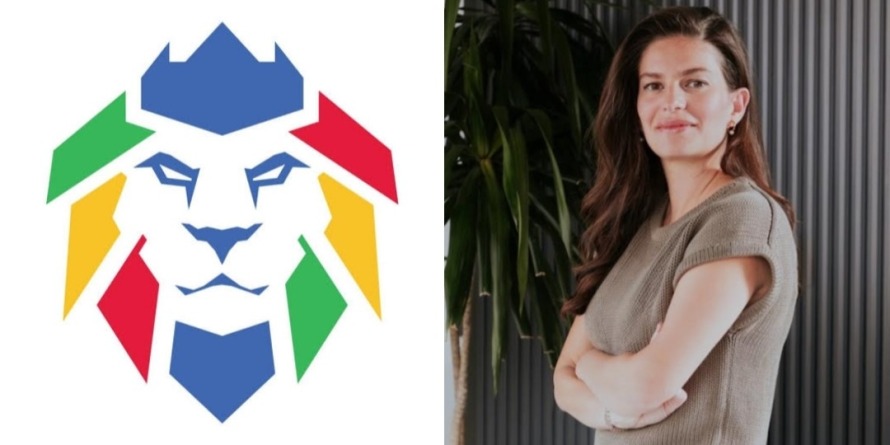- “Some overlook this market due to unfamiliarity with its nuances and perceived risks”
- “We are actively exploring AI to optimise our game development processes”
Pocket Gamer Connects Jordan returns on November 9th and 10th, 2024, offering you a chance to gain insights into the world’s fastest-growing games market, MENA. As part of our run up, we caught up with Babil Games CEO Ghina Al-Sharif to discuss her experience leading the company along with the MENA region’s challenges and opportunities.
She also spoke to us about the company’s culture and offered her perspectives on emerging technologies like AI and AR.
PocketGamer.biz: Could you tell us a bit about Babil Games and what you’re up to right now?
Ghina Al-Sharif: Babil Games is part of the Stillfront Group. As a gaming studio, we are focused on delivering exceptional gaming experiences in the MENA region. Our goal is to lead the market by creating engaging, high-quality, culturally resonant games that exceed player expectations.
Our current focus is expanding our games portfolio across new genres and platforms with new in-game innovations and engaging storylines.
How many staff do you currently employ? Where are they based?
We employ 60 talented professionals based strategically in Amman, Jordan and Dubai, UAE. This allows us to effectively serve the MENA market, leveraging our prime locations for maximum outreach and impact. Our team of diverse professionals cover all aspects of game development and publishing starting from developers, marketing and publishing experts, art directors and creatives, live operations and community management, to localisation experts.
As an industry leader who’s held multiple leadership roles, how has the experience of leading Babil Games in the UAE been for you personally?
Leading Babil Games has been an incredibly fulfilling journey, particularly as a woman leader in the gaming industry. It has provided me with a platform to not only contribute to the vibrant gaming landscape of the region but also to challenge and redefine traditional leadership norms.
“Leading Babil Games has been an incredibly fulfilling journey, particularly as a woman leader in the gaming industry .”
Ghina Al-Sharif
Together with the Babil team, we’ve been able to take the company towards new heights in innovation and player engagement, leveraging diversity and inclusivity as key strengths. This experience has not only shaped my professional growth but also reinforced my commitment to fostering an environment where diverse perspectives thrive and contribute to our collective success.
How do you maintain your company culture whilst operating two offices in different countries?
Operating in Dubai and Jordan has strategically positioned us to deeply engage with our audience daily, understand their preferences, and maintain a cohesive company culture that stems from these two dynamic and culturally rich countries. We prioritise transparency and have infused our company values with ones that resonate with the heritage of both countries, which are key in fostering a supportive environment for our employees and players.

What are you doing to foster collaboration and recruit local talents?
We are actively fostering collaboration and recruiting local talents through engagement with institutions, gaming events, and workshops. Our focus is on mentorship and skill development programs to empower aspiring developers and professionals in the gaming industry.
“Localising games for the Arabic market has presented challenges such as navigating language complexities, regional dialects, and cultural sensitivities.”
Ghina Al-Sharif
How have your games been received internationally outside the MENA region?
Our games like NH3 (Nida Harb 3) and TGF (The Grand Frontier) have been incredibly well-received internationally, with over 15 million downloads combined. This success underscores our commitment to delivering quality gameplay and effective localisation that resonates with players worldwide.

With six games localised for the Arabic market, what are some of the biggest challenges you’ve faced in the localization process, and how have you ensured a culturally relevant experience for players?
Localising games for the Arabic market has presented challenges such as navigating language complexities, regional dialects, and cultural sensitivities. Our approach integrates cultural elements to ensure an authentic and immersive experience that resonates deeply with our players in the MENA region.
What do you see as the current opportunities and challenges facing the MENA gaming landscape, and why do you think some still overlook the market despite its growth potential?
The MENA gaming market presents significant opportunities driven by a young, tech-savvy population and increasing smartphone penetration. However, challenges include regulatory complexities and varying economic landscapes across different countries. Some overlook this market due to unfamiliarity with its nuances and perceived risks.

What are your thoughts on emerging technologies such as AI, AR, and VR in gaming? And do you have plans to incorporate AI into your game development process?
I believe emerging technologies like AI, AR, and VR have immense potential to transform gaming by enhancing gameplay mechanics and personalising player experiences. At Babil Games, we are actively exploring AI to optimise our game development processes, improve player engagement, and deliver more immersive gaming experiences.
What are your plans for the second half of 2024? Are there any specific initiatives or projects on the horizon that we should look out for?
We are focused on expanding into new genres, platforms, and technologies in order to innovate and diversify our gaming portfolio. Stay tuned for exciting new games and collaborations that will set new benchmarks in interactive entertainment for MENA gamers.

